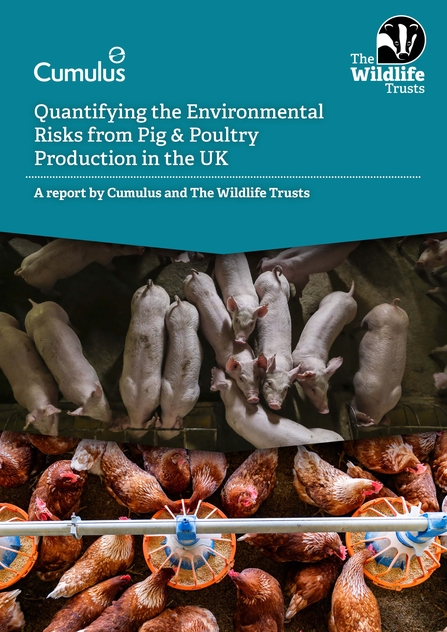A new independent report, commissioned by The Wildlife Trusts, has for the first time investigated the cumulative impact of the UK pig and poultry sector on the wider countryside, including the damaging effects of growing the vast feedstocks needed for these animals. The findings reveal the deep impacts of these increasingly intensive industries on water quality and pollution levels.
Key findings include:
- The scale of the UK pig and poultry sector is huge, with intensive production highly concentrated into ‘hotspot’ areas which often mean current regulations are insufficient to manage the potential environmental impacts of these enterprises.
- The waste from pig and poultry production is about 10.4 million cubic metres per year in the UK, equivalent to 4,160 Olympic-sized swimming pools. The high level of nutrients found in this excreta make it hard to use this waste sustainably.
- Over a third of the UK’s total wheat crop is grown for consumption by pigs and poultry. The fertiliser and pesticide use associated with producing a high output of these cheap grains risks more pollution, placing further pressure on UK wildlife.

